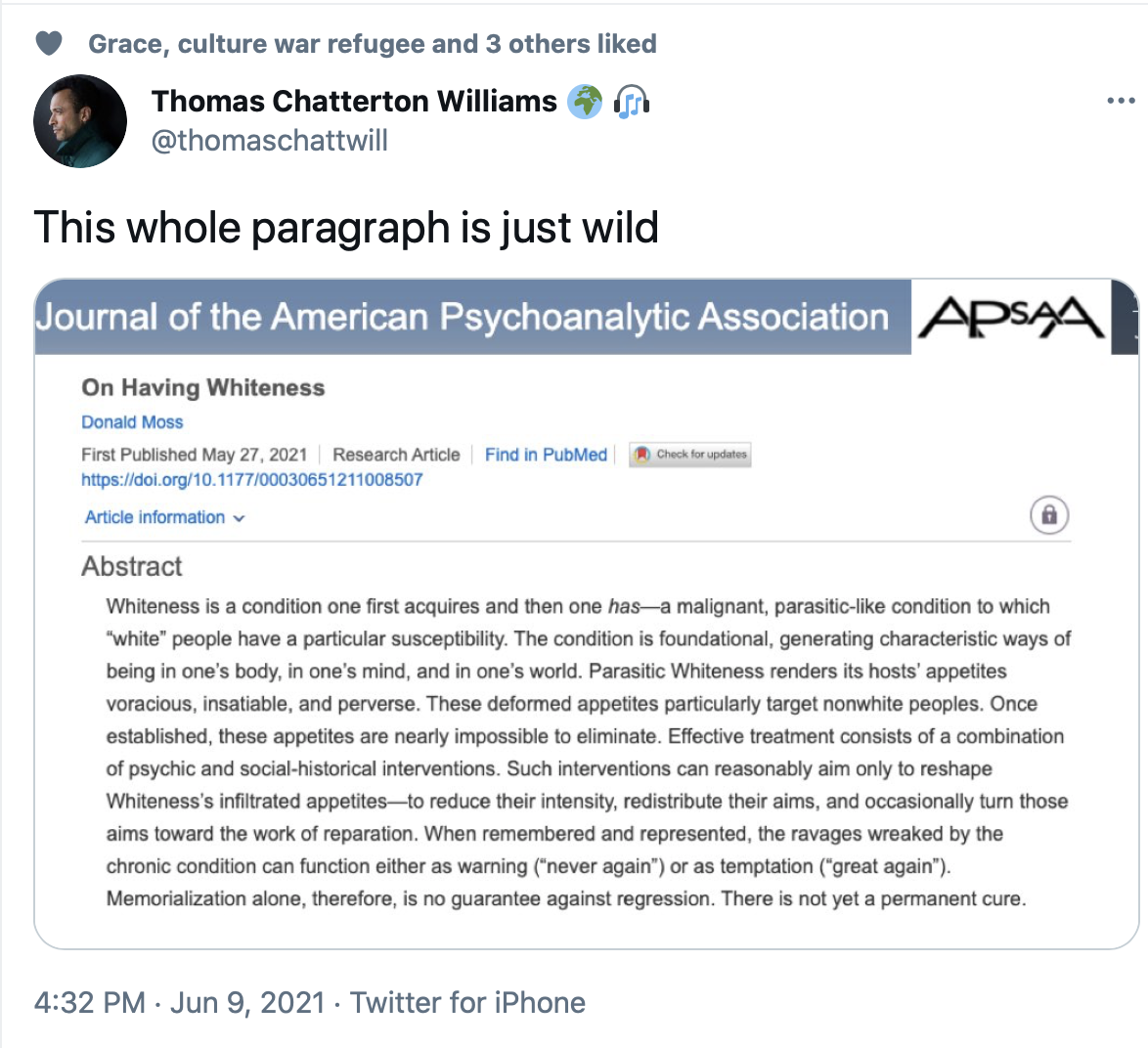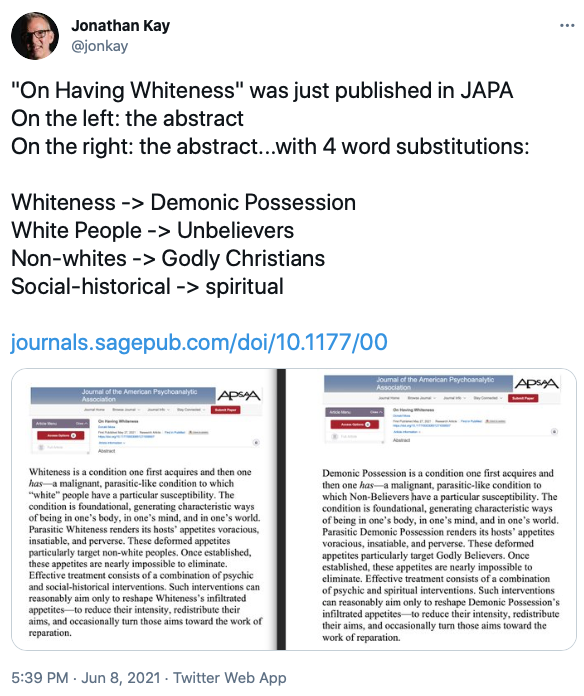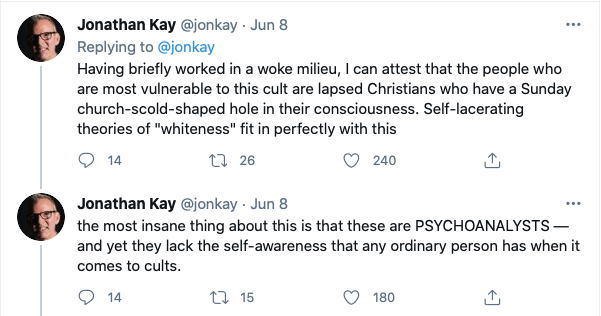The Journal of the American Psychoanalytic Association proudly asserts the following on its About Page:
One of the world’s most respected publications in psychoanalysis, the Journal of the American Psychoanalytic Association (JAPA) offers insightful and broad-based original articles, ground-breaking research, thoughtful plenary addresses, in-depth panel reports, perceptive commentaries, plus much more. Included in each issue is the esteemed JAPA Review of Books, which provides comprehensive reviews and essays on recent notable literature. . . . Published bimonthly, this peer-reviewed publication is an invaluable resource for psychoanalysts, psychologists, psychiatrists, social workers, and other mental health professionals.
What kinds of articles might you find in the current issue of this prestigious journal? Consider this one:
On Having Whiteness
Donald Moss
First Published May 27, 2021 Research Article Find in PubMed
https://doi.org/10.1177/00030651211008507
Abstract
Whiteness is a condition one first acquires and then one has—a malignant, parasitic-like condition to which “white” people have a particular susceptibility. The condition is foundational, generating characteristic ways of being in one’s body, in one’s mind, and in one’s world. Parasitic Whiteness renders its hosts’ appetites voracious, insatiable, and perverse. These deformed appetites particularly target nonwhite peoples. Once established, these appetites are nearly impossible to eliminate. Effective treatment consists of a combination of psychic and social-historical interventions. Such interventions can reasonably aim only to reshape Whiteness’s infiltrated appetites—to reduce their intensity, redistribute their aims, and occasionally turn those aims toward the work of reparation. When remembered and represented, the ravages wreaked by the chronic condition can function either as warning (“never again”) or as temptation (“great again”). Memorialization alone, therefore, is no guarantee against regression. There is not yet a permanent cure.
Who is Donald Moss? Here’s some information: “Donald Moss is a psychoanalyst with more than 40 years’ experience in private practice in New York City and a member of the San Francisco Center for Psychoanalysis.”
If Moss was looking for negative attention, he is getting it, including this article in Newsweek. I learned about Moss’ article from Thomas Chatterton Williams’ Tweet (Note: TCW authored an excellent book on race, Self-Portrait in Black and White: Unlearning Race)
Jonathan Kay offers some substitutions to illustrate an important point:
As I read the abstract, I wondered whether there were many psychoanalysts in modern times. That’s when I found an article titled: “Is Psychoanalysis Still Relevant to Psychiatry?” My gut yelled, “No!” But I read on and found this passage:
Psychoanalysis is a theory of psychopathology and a treatment for mental disorders.Fifty years ago, this paradigm had great influence on the teaching and practice of psychiatry. Today, psychoanalysis has been marginalized and is struggling to survive in a hostile academic and clinical environment. This raises the question as to whether the paradigm is still relevant in psychiatric science and practice.
The JAPA article is yet more evidence that CRT/Wokeness is a religion, not merely like a religion, as argued by John McWhorter.
I’ll end with this double Tweet by Jonathan Kay:





This is shocking. However, I’ve been following the therapy industry for many years, and this is merely the icing on the cake as far as the many layers of problematic ideas the therapy community has been pushing over the years. The book “Against Therapy: Emotional Tyranny and the Myth of Psychological Healing,” by J. Moussaieff Masson discusses many–but not all–of the blind alleys down which therapists have led themselves and others since it first became a discipline.
Thank you for the recommendation. I found this quote on Rogerian therapy from Masson’s book and it intrigues me (I wondered the same thing when I was studying psychology in undergrad): “Masson argues that the theory is inconsistent because the therapeutic relationship prevents real connection and therefore the empathy that it claims is necessary for effective therapy, because the therapist is not in any way invested in the relationship.”
Utter garbage. If patient and provider agree on using psychoanalysis, then come to a mutual understanding of what it is and of what or how it will be helpful. Classical psychoanalysis is a year-long process, and it not used often today. My suspicion is that they’re using the term as a catch-all for talk therapy.